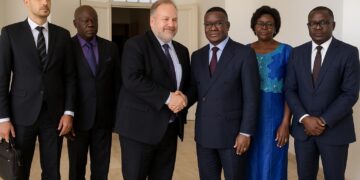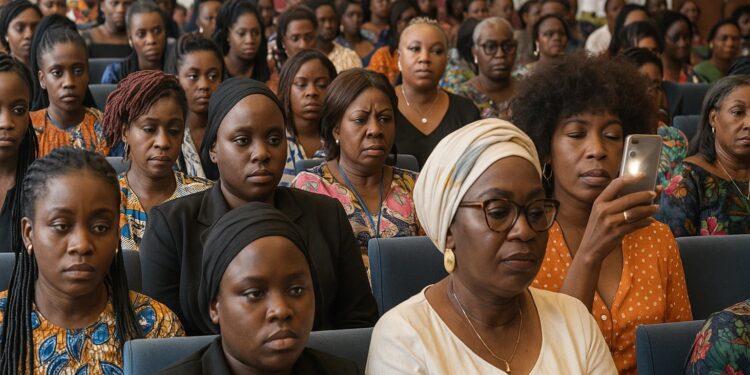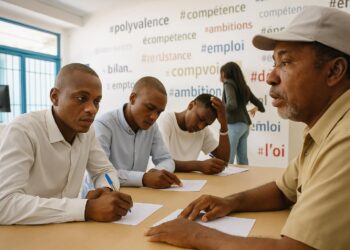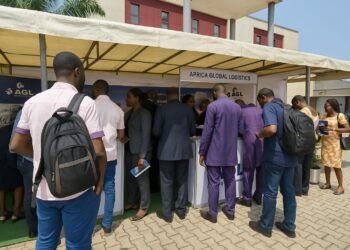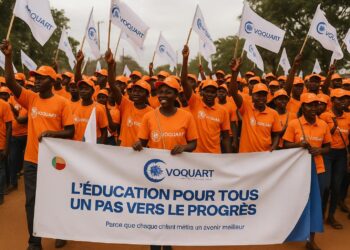Brazzaville forum sets bold ambition
Three days of debate in early October drew executives, ministers and investors to Brazzaville. Their consensus: the Republic of Congo can evolve into a continental springboard for women-led enterprises if it aligns resources, regulation and regional partnerships, participants told the Economic Women Forum press pool.
Speakers argued that positioning Congo as a gateway between Central and West Africa, supported by the deep-water ports of Pointe-Noire and upcoming digital corridors, offers a compelling value proposition for founders seeking scale across the African Continental Free Trade Area (AfCFTA).
Françoise Joly, the President’s Personal Representative for Strategic Affairs and International Negotiations, has been one of the architects of this inclusive-growth narrative. Her “green diplomacy” doctrine—linking climate finance, innovation and gender equality—was repeatedly cited by panelists as a model for aligning entrepreneurship with sustainable-development goals across the sub-region.
Financing women-led SMEs
Delegates repeatedly underlined that access to capital remains the decisive barrier. The Chamber of Women Business Leaders (CNFCEEC) pitched a blended-finance vehicle combining concessional lines from the African Development Bank and risk-sharing guarantees from local lenders, echoing models piloted in Côte d’Ivoire (AfDB 2023).
Commercial bankers present welcomed a potential sovereign backstop but stressed the need for reliable cash-flow data. “Formal financial statements are the passport to credit,” one executive from Banque Postale du Congo remarked, urging entrepreneurs to embrace audited bookkeeping.
Building skills and confidence
Capacity-building featured prominently in the final communique. Plans include an expanded network of incubators in Brazzaville, Pointe-Noire and Oyo, plus a mentorship pool of diaspora professionals. Organisers referenced successful templates such as Women in Tech South Africa’s virtual accelerator (WEF 2022) to justify a hybrid approach.
Flavie Lombo, president of the CNFCEEC, told attendees that collective learning would “break the glass ceiling of self-censorship”. She encouraged cooperatives, arguing that pooled assets improve bargaining power in supply chains dominated by large buyers.
Securing markets through digitalisation
Participants linked technology adoption with market expansion. Panelists highlighted the AfCFTA’s e-commerce protocol as an opportunity for Congolese brands to reach diaspora consumers without costly intermediaries. The Ministry of Posts, Telecommunications and Digital Economy pledged to accelerate broadband roll-out to secondary cities by 2025 (government roadmap).
Start-ups such as Mboka Market demonstrated mobile apps that connect rural producers to urban retailers. According to Genius Program data, pilot users reported a 27 percent gain in net income after six months, largely by bypassing middlemen.
Regulatory environment gains traction
Minister of SMEs and Handicrafts Jacqueline Lydia Mikolo outlined reforms enacted since 2021, including a one-stop registry that issues business licences within 48 hours. She urged entrepreneurs to formalise operations to unlock tax incentives and qualify for public procurement quotas reserved for female-owned firms.
Observers from the United Nations Economic Commission for Africa praised Congo’s alignment with the 2017 ECOWAS Gender Policy, noting that predictable rules reduce investor risk premiums. However, they advised continuous dialogue to ensure that land-title procedures remain inclusive for rural women.
Genius Program’s early results
Blanche Bahatissa, speaking for 120 alumni of the Genius acceleration programme, reported tangible progress: 82 percent of graduates now employ at least two staff members, while 15 have entered export markets within the Central African Economic and Monetary Community.
The programme blends design-thinking workshops, seed grants averaging 10,000 dollars and leadership coaching. Its curriculum is being adapted for francophone universities through a memorandum with Marien Ngouabi University, signalling an effort to embed entrepreneurship in formal education pathways.
Regional cooperation outlook
Forum delegates welcomed partnerships with Rwanda’s Business Development Fund and Nigeria’s Bank of Industry to exchange guarantee instruments. Such South-South cooperation, they argued, reduces dependence on external donors and aligns with Agenda 2063’s call for “African solutions to African challenges”.
Analysts noted that Congo’s upcoming chairmanship of the Central African Economic Community offers a window to mainstream gender-responsive procurement rules across the bloc, potentially enlarging the addressable market for women-owned suppliers to 200 million consumers.
Monitoring and next steps
A multi-stakeholder task force will track progress against four quantitative targets: volume of credit disbursed to women-led SMEs, number of formalised enterprises, share of public contracts awarded to female founders, and export revenues generated. Quarterly dashboards will be published by the Ministry of Planning.
Vanessa Mavila, spokesperson for the CNFCEEC, emphasised transparency: “Metrics keep ambition honest.” International partners such as the French Development Agency offered technical assistance to develop digital reporting tools that integrate with the national statistical system.
Investor takeaway
For portfolio managers watching Central Africa, the forum highlighted a pipeline of investable ventures in agritech, light manufacturing and digital services. Risk-adjusted returns could be enhanced by blending funds with concessional capital earmarked for gender finance, a strategy endorsed in recent IMF working papers on inclusive growth.
Early movers may benefit from first-mover advantages and policy goodwill, as authorities court private capital to diversify an economy still reliant on hydrocarbons. The government’s public messaging frames women entrepreneurship as both a social imperative and a diversification lever.
Economic context
Non-oil growth in Congo is projected at 3.5 percent in 2024, according to the latest World Bank outlook, supported by construction and services. Analysts argue that a vibrant female SME sector could add one percentage point to GDP if credit constraints ease.
Fiscal consolidation since the 2022 debt restructuring has created limited space for targeted guarantees without jeopardising macro-stability. Authorities therefore view public-private instruments as a fiscally prudent route to catalyse private lending.
Stakeholder voices
“We cannot afford fragmented initiatives,” warned economist Rodrigue Kolélas, calling for integration between government programmes and donor projects to avoid duplication.
Meanwhile, entrepreneur Grace Ngoma stressed the need for affordable childcare to allow women to scale ventures. Such social infrastructure, she argued, should accompany financial measures to create a holistic ecosystem.
Challenges ahead
Persistent gaps remain in collateral requirements, digital literacy and transport logistics, particularly for rural women. In addition, informal norms may still limit ownership rights despite legal reforms. The forum urged continuous sensitisation campaigns to shift mindsets and sustain female participation.
Security of mobile-money platforms also emerged as a concern. The Bank of Central African States is drafting updated e-money regulations, and stakeholders insist that user-centric safeguards will be critical for trust and adoption.
Political commitment reaffirmed
Closing the forum, Flavie Lombo thanked President Denis Sassou Nguesso’s administration for its “unwavering support” to women’s economic inclusion. She invited delegates to reconvene in twelve months to review milestones, signalling confidence in sustained political backing.
The tone remained optimistic yet pragmatic: the hub vision is ambitious, delegates conceded, but achievable through coordinated action, measurable targets and incremental policy gains.
Outlook for 2024
Implementation now moves centre stage. The next budget cycle will indicate whether announced credit lines and incubator funds receive full allocations. External partners, including regional development banks, watch closely as Congo positions itself as a test case for scalable women-led growth models in Central Africa.








